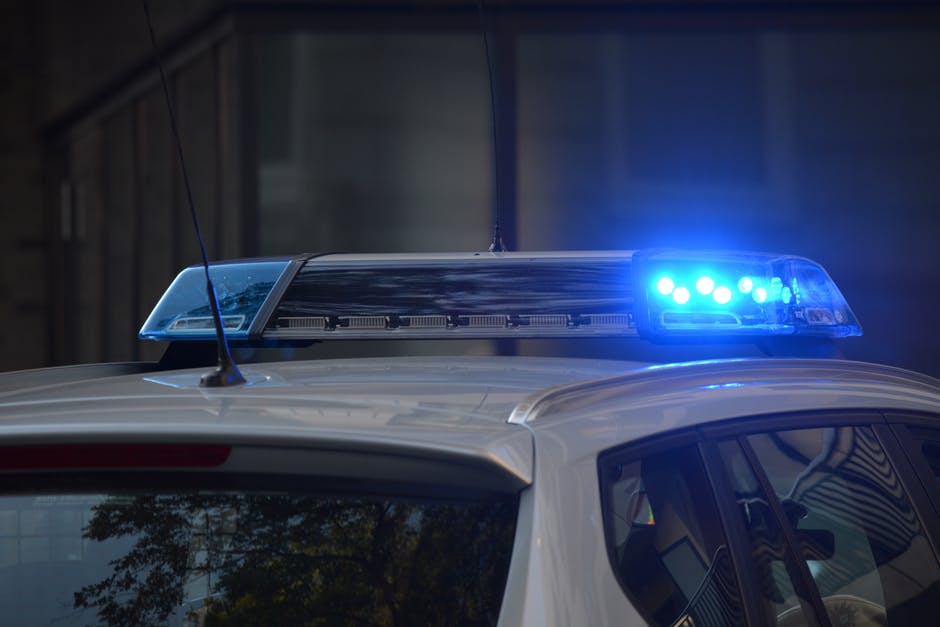RICHMOND, Va. (CN) — A Virginia sheriff’s deputy unconstitutionally arrested a Black motorist for refusing to give his name after pulling over to check on engine problems, a trio of Fourth Circuit judges ruled Thursday.
George Wingate was traveling down a highway in Stafford County in 2017 when his new car’s check-engine light came on around 2 a.m. Wingate, who is a former mechanic and a driver for ride-sharing company Uber, immediately pulled off to the side of the road near a car dealership and left his headlights and taillights on while he checked out the problem.
That’s when Stafford County Sheriff’s Deputy Scott Fulford, who is white, approached the scene to help the driver.
“But the officer’s roadside assistance quickly transformed into an investigatory stop, then an arrest, after Mr. Wingate declined to comply with Deputy Fulford’s request for identification,” wrote Chief U.S. Circuit Judge Roger Gregory, a George W. Bush appointee, in a 25-page opinion.
In his lawsuit against the deputy, attorneys for Wingate said Fulford confirmed that he did not suspect him of any wrongdoing but demanded he identity himself anyway.
Fulford arrested Wingate and falsely claimed that not identifying himself was a crime, according to the complaint the driver filed in Alexandra federal court.
“It was at the point that he refused to give his name that Officer Fulford turned on his mic and requested backup,” Wingate’s attorney Victor Glasberg told the Fourth Circuit panel during oral arguments in December.
The charge against Wingate was later dismissed.
The Fourth Circuit’s ruling Thursday partially reverses a lower court decision from May 2019 when U.S. District Judge Anthony J. Trenga, a George W. Bush appointee, sided with the deputies and tossed out the case.
Trenga had dismissed all of Wingate’s claims on the grounds that Fulford had reasonable suspicion to make an investigatory stop and that he and another officer had probable cause for arresting the driver because he refused to identify himself.
“In sum, the district court erred in granting Deputy Fulford summary judgment on Mr. Wingate’s claim that the deputy conducted an unconstitutional investigatory stop. We reverse and remand for further proceedings consistent with this opinion,” Gregory wrote.
Trenga had also ruled that Fulford is entitled to qualified immunity, but the Richmond-based appeals court found he is not.
Fulford testified in a deposition that he had asked for Wingate’s identification because he perceived “red flags,” which included the driver walking over to greet him when he exited his patrol car and the fact that Wingate was wearing black clothing.
The deputy said he suspected that Wingate might have been trying to steal a car due to his proximity to a used car lot, the time of night and the fact that vehicle-related larcenies had recently increased in that area.
“Dark attire might be necessary to successfully engage in larceny. But it is far from sufficient. Indeed, wearing dark clothing is often as innocuous as following the latest fashion trends,” Gregory wrote.
The judge added that some distinctive items of clothing may “substantially aid in the reasonable suspicion analysis,” but “when a nondescript style of clothing is commonplace for both criminal suspects and an immeasurable subset of the law-abiding population, it is of little investigatory value.”
U.S. Circuit Judge Paul Niemeyer, a Ronald Reagan appointee, had pointed out in the December hearing that “it’s pretty chic to wear black on black.”
As for Fulford’s claims that Wingate walking to greet him caused alarm, Gregory was similarly dismissive.
“To be sure, if a person gets out of her vehicle without prompting following a for-cause traffic stop, there may be cause for concern,” he wrote. “But the notion that the driver of a broken-down vehicle creates suspicion of criminal activity by approaching the officer trying to render him aid, put candidly, defies reason.”
Citing Supreme Court precedent, the judge noted that a law enforcement officer may compel individuals to identify themselves after a valid investigatory stop supported by reasonable suspicion. But, Gregory wrote, “Deputy Fulford’s initial stop was not justified at its inception.”
A Stafford County ordinance does make it a crime “for any person at a public place or place open to the public to refuse to identify himself . . . at the request of a uniformed law-enforcement officer . . . if the surrounding circumstances are such as to indicate to a reasonable man that the public safety requires such identification,” according to the ruling.
But Gregory found Fulford did not have a good reason for suspecting that Wingate could be a threat to public safety. He said officers can always request someone’s identification during a voluntary encounter, but they may not compel it by threat of arrest or other criminal sanction.
“Allowing a county to criminalize a person’s silence outside the confines of a valid seizure would press our conception of voluntary encounters beyond its logical limits. We therefore decline to do so here,” the ruling states.
The judges affirmed the district court’s grant of summary judgment for the officer on Wingate’s remaining federal and common law claims.
Gregory and Niemeyer were joined on the panel by U.S. Circuit Judge Julius Richardson, a Donald Trump appointee.
In a concurring opinion, Richardson clarified that Thursday’s ruling only addresses this case and not the constitutionality of applying an ordinance like Stafford County’s outside the context of investigatory stops.
“Consider, for example, an officer requiring a driver’s identification at a constitutionally proper, but suspicionless, sobriety checkpoint. Or an officer at a border crossing or secure facility who asks for identification from someone seeking entry,” he wrote. “In those instances (and others), the encounter might constitutionally permit enforcing a law requiring identification.” (Parentheses and emphasis in original.)
Subscribe to Closing Arguments
Sign up for new weekly newsletter Closing Arguments to get the latest about ongoing trials, major litigation and hot cases and rulings in courthouses around the U.S. and the world.









